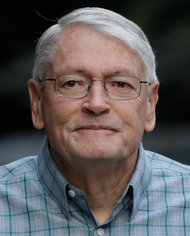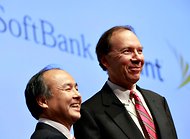The inquiry, which was announced in the capital, Brasília, on Friday and comes after several months of analyzing testimony, opens a new phase in what has arguably been Brazil’s largest corruption scandal, already involving the conviction of Mr. da Silva’s powerful former chief of staff, José Dirceu de Oliveira e Silva, on conspiracy and bribery charges last year.
The move by the Public Ministry, which asked the federal police to carry out the investigation, is thought to be the first time that Mr. da Silva has been directly investigated in connection to the scheme, called the mensalão, or big monthly allowance, for the regular payments that some lawmakers received. The scandal emerged in 2005, during Mr. da Silva’s first term as president. At 67, he remains a towering figure in Brazilian politics.
Marcos Valério de Souza, a businessman who received a 40-year sentence last year after he was found to have operated much of the embezzlement scheme, said in testimony last September that Mr. da Silva and Antonio Palocci, a former finance minister, negotiated in 2005 a multimillion-dollar payment with the former president of a Portuguese telecommunications company.
The funds, according to Mr. de Souza, were channeled from a supplier of the company, Portugal Telecom, based in Macau, the former Portuguese colony that is now a special administrative region of China, to accounts of advertising executives in Brazil who worked on campaigns for the Workers’ Party. He also said that the funds were used to pay campaign-related debts.
A spokesman for Instituto Lula, the former president’s institute in São Paulo, said Saturday that Mr. da Silva had not been formally notified of the investigation. He declined to comment further. When Mr. de Souza’s testimony was made public last year, Mr. da Silva dismissed it, saying, “I cannot believe in lies.”
Portugal Telecom, which has large operations in Brazil, did not respond to requests for comment.
While several political figures, including José Genoino Guimarães Neto, the former president of the Workers’ Party, received sentences in November for their roles in the vote-buying scheme, none have gone to prison. Lawyers for the defendants have been maneuvering to delay the Supreme Court from formally publishing its findings from the trial, a step that is needed for those sentenced to go to jail.
Article source: http://www.nytimes.com/2013/04/07/world/americas/brazil-opens-inquiry-into-vote-buying-claims.html?partner=rss&emc=rss


